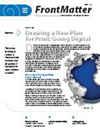Perceptions and Revitalization of Local Ecological Knowledge in Four Schools in Yasin Valley, North Pakistan
IF 1.8
4区 环境科学与生态学
Q4 ENVIRONMENTAL SCIENCES
引用次数: 4
Abstract
Mountains are often recognized as sites of biocultural diversity, and local ecological knowledge (LEK) is an integral part of community life. Rapid cultural standardization and urbanization have threatened biocultural diversity, posing threats to LEK in mountain areas. The current study aimed to gather data on the status of LEK in the Yasin Valley, Gilgit-Baltistan, Pakistan, and discuss options with the local population for revitalizing LEK in future educational programs. We explored the perceptions of local communities on the importance of LEK and its possible revitalization and transmission in the school curriculum. Data were collected from students, teachers, and local knowledge holders in 4 schools located in the valley. In the area, LEK is considered an important part of the local biocultural heritage, playing a potential role in socioenvironmental sustainability, but we observed a lack of intergenerational transmission of LEK, using LEK of wild food plants as a proxy. Participants confirmed that the existing environmental and food education does not cover the local cultural ecologies, and thus the prevailing centralized curriculum system has isolated students from learning LEK. Preliminary interactions with participants did not reveal any opinions on the transmission of LEK through teaching–learning processes. During group discussions, however, we discovered some potential strategies that could help in the revitalization of LEK in schools, such as study trips, traditional food day celebrations, developing herbaria, art competitions, and the introduction of food scouting. More importantly, place-based education, connected to the local biocultural heritage, could provide a useful foundation for the intergenerational transmission of LEK. Therefore, on the basis of our case study, we appeal to local policymakers to pay attention to the erosion of LEK and ask that it be given space in future development programs to achieve sustainable development and help mountain communities.巴基斯坦北部亚辛山谷四所学校对当地生态知识的认知与振兴
山区通常被认为是生物文化多样性的场所,当地生态知识(LEK)是社区生活不可或缺的一部分。快速的文化标准化和城市化已经威胁到生物文化多样性,对山区的LEK构成了威胁。目前的研究旨在收集巴基斯坦吉尔吉特-巴尔蒂斯坦亚辛山谷LEK现状的数据,并与当地居民讨论在未来教育计划中振兴LEK的方案。我们探讨了当地社区对LEK重要性的看法,以及它可能在学校课程中的振兴和传播。数据来自山谷中4所学校的学生、教师和当地知识持有者。在该地区,LEK被认为是当地生物文化遗产的重要组成部分,在社会环境可持续性方面发挥着潜在作用,但我们观察到,使用野生食用植物的LEK作为替代品,LEK缺乏代际传递。与会者证实,现有的环境和食品教育没有涵盖当地的文化生态,因此,现行的集中课程体系使学生无法学习LEK。与参与者的初步互动没有揭示任何关于LEK通过教学过程传播的意见。然而,在小组讨论中,我们发现了一些有助于振兴学校LEK的潜在策略,如学习旅行、传统美食日庆祝活动、开发草药库、艺术比赛和引入美食侦察。更重要的是,与当地生物文化遗产相关的地方教育可以为LEK的代际传播提供有用的基础。因此,在我们的案例研究的基础上,我们呼吁当地决策者关注LEK的侵蚀,并要求在未来的发展计划中为其提供空间,以实现可持续发展并帮助山区社区。
本文章由计算机程序翻译,如有差异,请以英文原文为准。
求助全文
约1分钟内获得全文
求助全文
来源期刊
CiteScore
3.10
自引率
18.80%
发文量
36
审稿时长
4.5 months
期刊介绍:
MRD features three peer-reviewed sections: MountainDevelopment, which contains “Transformation Knowledge,” MountainResearch, which contains “Systems Knowledge,” and MountainAgenda, which contains “Target Knowledge.” In addition, the MountainPlatform section offers International Mountain Society members an opportunity to convey information about their mountain initiatives and priorities; and the MountainMedia section presents reviews of recent publications on mountains and mountain development.
Key research and development fields:
-Society and culture-
Policy, politics, and institutions-
Economy-
Bio- and geophysical environment-
Ecosystems and cycles-
Environmental risks-
Resource and land use-
Energy, infrastructure, and services-
Methods and theories-
Regions

 求助内容:
求助内容: 应助结果提醒方式:
应助结果提醒方式:


